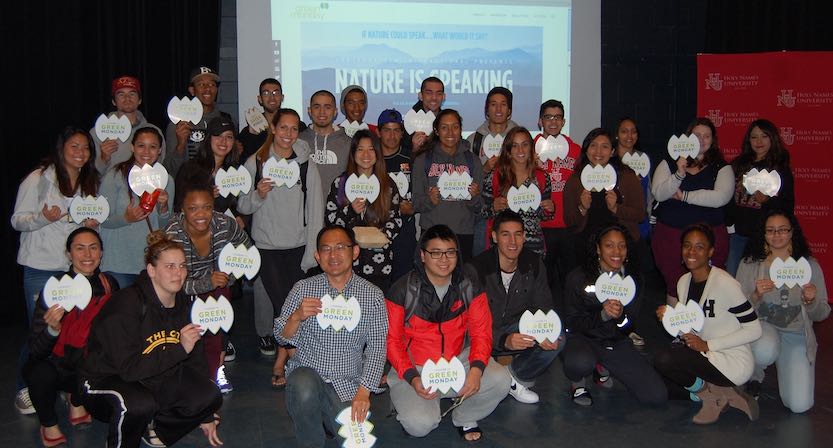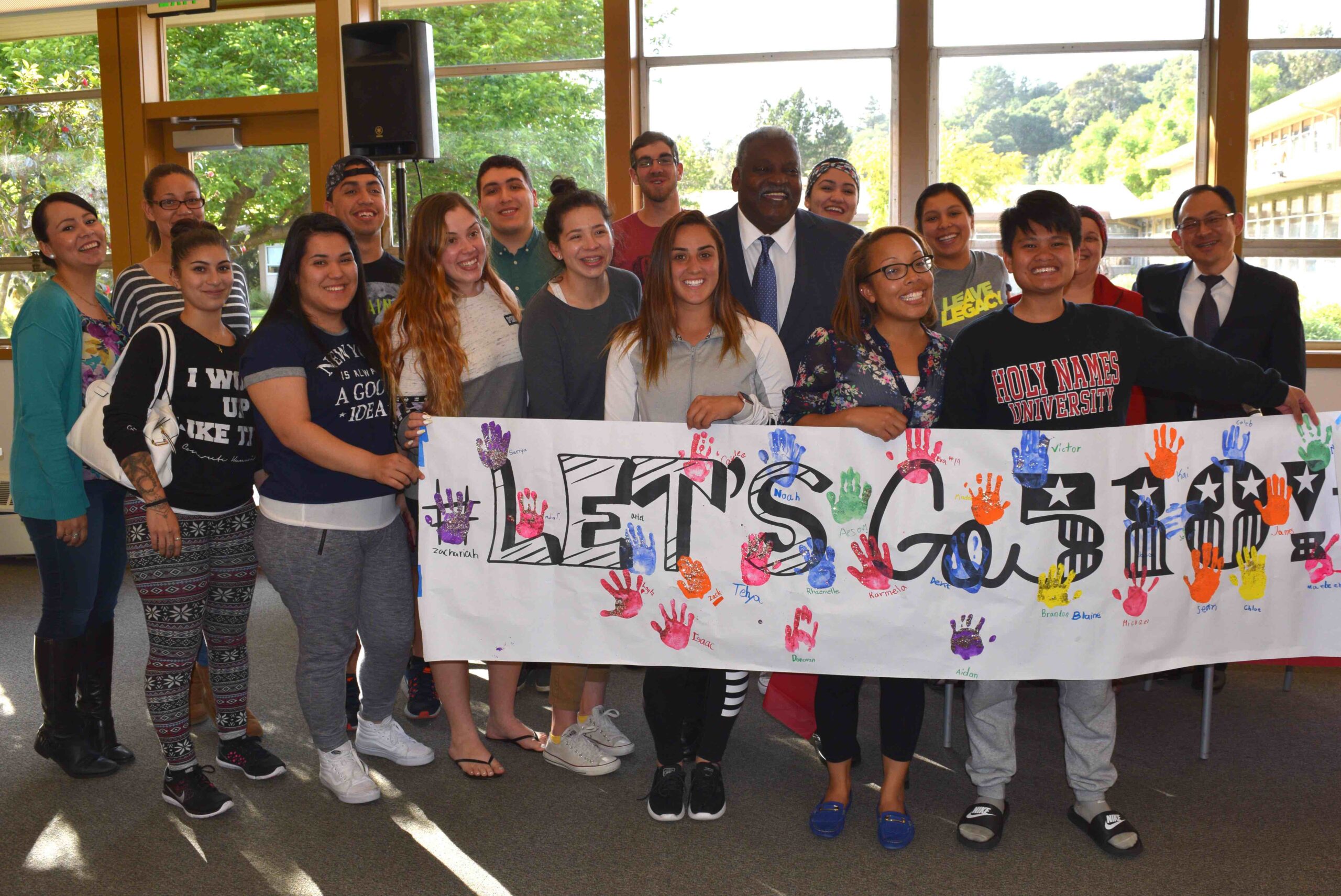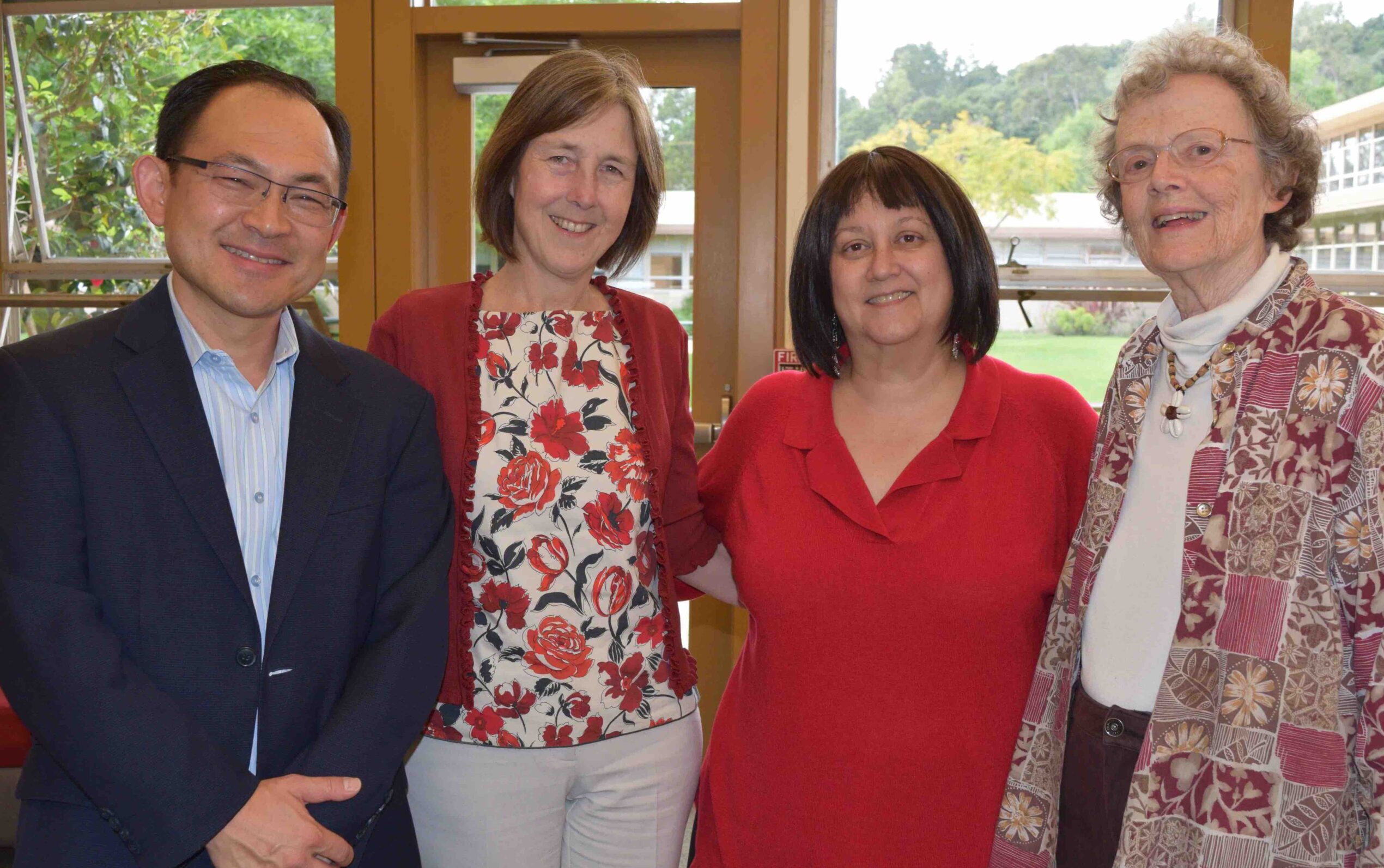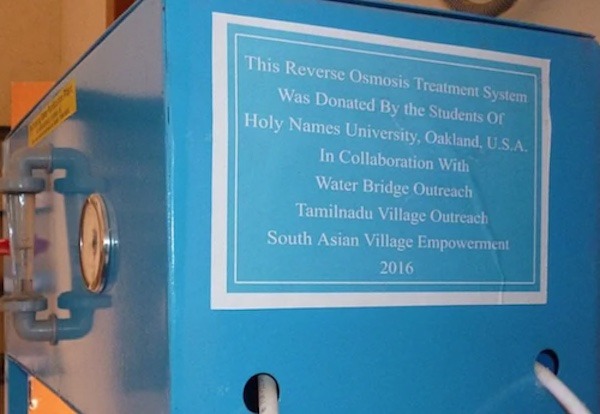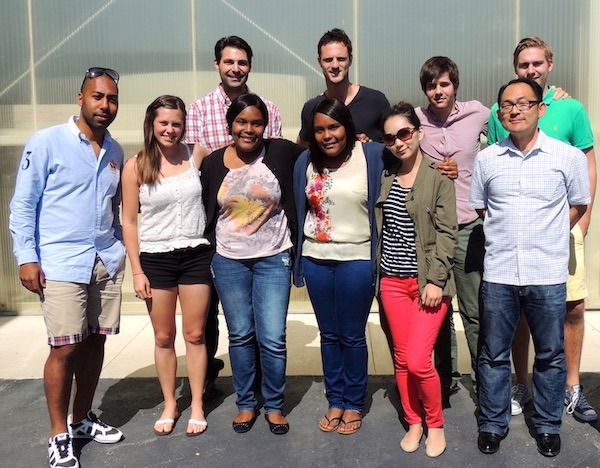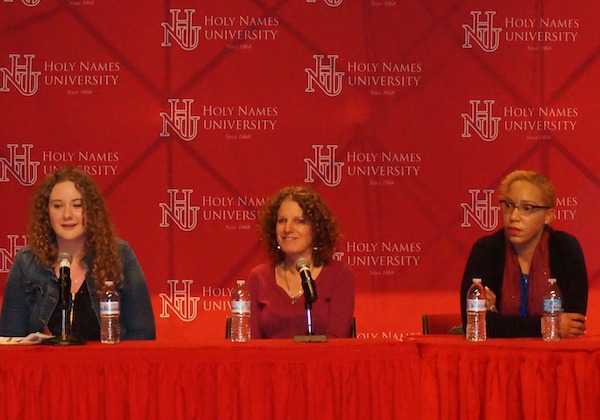
The Asia Pacific Peace Studies Institute is dedicated to helping nurture a new generation of peacebuilders who can address complex global and local challenges. APPSI partners with social enterprises, non-profit organizations, and government offices to design student-centered, experiential learning projects that advance human security and environmental sustainability.
The APPSI NextGen Peacebuilders Program offers students opportunities to engage in project design and management as they grapple with real-world challenges. Our projects have advanced conflict resolution, disaster relief, environmental and water justice, fair trade and community empowerment, fighting human trafficking, and protecting the most vulnerable among us. Please scroll down for a list and brief descriptions of our projects.
Photo: Students at one of the member schools in the “Water for Four Schools” Project in Tamil Nadu, India, which was undertaken in partnership with the NGO WaterBridge Outreach.
Fair Trade Campaigns is a powerful grassroots movement mobilizing students and other civil society groups to promote Fair Trade as a solution to some of the most pressing problems in our food production and trade systems. Fair Trade Campaigns is based in Oakland, California, and organized along four constituent categories: Colleges & Universities, Congregations, K-12 Schools, and Towns & Cities.
Through this experiential learning and leadership development program, our students push Holy Names University to meet commitments to sustainability and social justice, and, moreover, serve as a catalyst for change. HNU students have also interned at Fair Trade USA headquarters in Oakland and are now helping spread the Campaign throughout the Bay Area.
APPSI serves as the institutional base for the HNU Fair Trade Campaign and related projects that examine food policy and foodways from an “integral ecology” perspective – seeking insights and pathways to “combating poverty, restoring dignity to the excluded, and at the same time protecting nature.” (Laudato si’)
“The Green Monday platform is a multi-pronged social venture model aimed at shifting the public towards sustainable living. We champion the adoption of a plant-based diet for at least one day per week to combat climate change, food insecurity, public health crisis, planetary devastation, and animal suffering.” (greenmonday.org)
APPSI and Holy Names University students partnered with the Hong Kong-based, global social enterprise Green Monday to design and undertake a campus sustainability project.
- First, HNU students researched and reflected on the industrial food systems and its social-environmental impacts.
- Second, HNU students hosted a lecture by Katie Cantrell, founder of the Factory Farming Awareness Coalition and U.S. operations coordinator for Green Monday.
- Third, HNU students met with representatives of the sustainable food services company Epicurean Group to increase vegetarian options at the HNU Public Market.
- Finally, to promote community participation in this initiative, HNU students organized and hosted a panel discussion with accomplished vegan athletes (including a body builder, long-distance runner, fitness trainer, professional soccer player). At this event members of the HNU community—notably, student athletes—learned how to integrate more plant-based proteins into their diets and training regimens.
For over 25 years, from the early 1990s to 2018, Sr. Chris Patrinos promoted experiential learning and student leadership training at HNU—especially in connection to public policy, voter engagement, and international peacemaking. This training has helped students secure internships and jobs at, notably, the California State Capitol in Sacramento and the U.S. Congress. We at APPSI were honored to assist her in recent years and pledge to continue this work in her memory.
The “Water for Four Schools in Tamil Nadu” project was a multi-year undertaking that continues to provide clean drinking water to school children in four remote villages (Mullipakkam, Salavankuppam, Ellandoppu, and Arungkundram) in southern India. In late 2014 HNU students hosted a public lecture on water justice by Dr. Peter Coughlan, executive director of WaterBridge Outreach, who then invited us to participate in an actual water project. Over the following year HNU students continued to explore water justice issues and ways to help communities gain access to clean water. They furthermore organized a fundraiser to support the project. Through this work with WaterBridge Outreach and additional partners on the ground in Tamil Nadu, a school in each of the four villages received its own reverse osmosis water purification system and training to maintain the equipment.
In response to the earthquake and tsunami that struck the northern coast of Japan on 11 March 2011, we established the JPRI Japan Earthquake & Tsunami Relief Fund in partnership with Give2Asia — a U.S.-based nonprofit that connects corporations, foundations, and individual donors with trusted local charitable projects and social enterprises in over 20 countries.
In addition to leading the JPRI fundraising drive, students researched approaches to disaster relief and community redevelopment, then applied their learning to debate how the JRPI Relief & Redevelopment Fund should be deployed to maximize its social impact.
Ultimately, the JPRI Fund was aggregated with fundraising efforts of other Bay Area organizations to create a $5.64 million fund, and helped support local service organizations and social enterprises in the Tohoku region of Japan that addressed urgent needs neglected by larger-scale government and NGO relief efforts.
We focused on “unmet needs” for the elderly, children, and persons with disabilities. These needs included, for example, providing rides for the elderly and others with limited mobility in rural villages to attend medical appointments and pickup medication; cleanup and restoration of playgrounds for children; expanding social enterprises and local service organizations to not only address the aforementioned needs but provide jobs for people displaced by the 3/11 earthquake and subsequent nuclear disaster.
Strait Talk is a nonpartisan dialogue workshop that empowers young people from both sides of the Taiwan Strait and across the USA to collaborate in transforming the Taiwan Strait conflict.
Its process is based on the Interactive Conflict Resolution method, which has been used since the 1960s to foster dialogue between people engaged in seemingly intractable conflicts. For more on ICR, see Tatsushi Arai, “Strait Talk: Youth-Led Civil Society Dialogues Across the Taiwan Strait,” in Asia Pacific Peace Studies vol. 1, no. 1 (Summer 2016): 45-68.
From 2010 to 2014 APPSI’s sister institute JPRI helped support this important student-centered initiative. Strait Talk now has chapters in Hong Kong, Taipei (Taiwan), Providence, and Berkeley.
We visited Stanford University to learn from its thriving student-centered peacebuilding and social innovation programs. Panango NGO was founded by undergraduates participating in the Future Social Innovators Network (FUSION) and a graduate fellow in the Reuters Digital Vision Program at Stanford. Panango sent American students to Papua New Guinea to teach English, immerse themselves in the the profound cultural and ecological diversity of the islands, and establish a network of program alumni committed to advocating for sustainable policies by the Global North toward Papua New Guinea and other countries of Oceania—notably, with respect to climate change adaptation, foreign direct investment, and cultural preservation. We were pleased to support one Panango Fellow, join planning meetings, and attend a 2-day policy conference with political leaders, educators, and community organizers from Papua New Guinea and other parts of Oceania.










